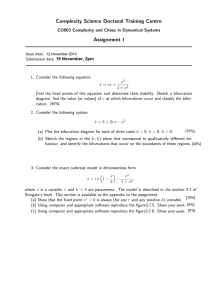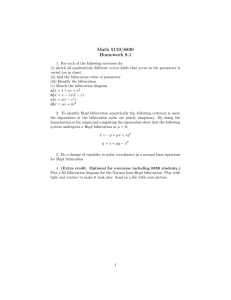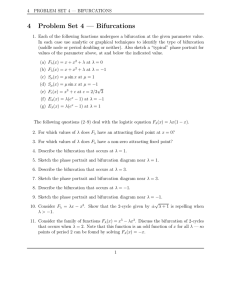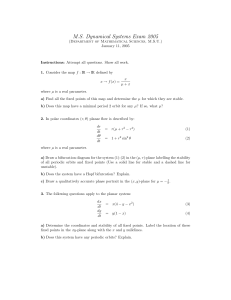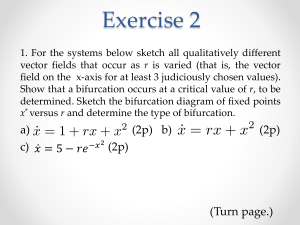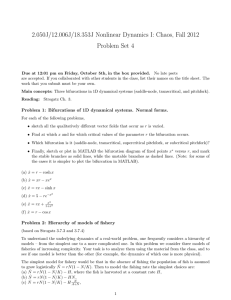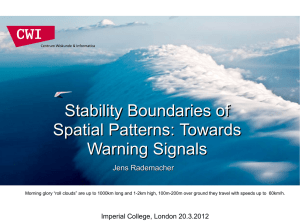Complexity Science Doctoral Training Centre Assignment II
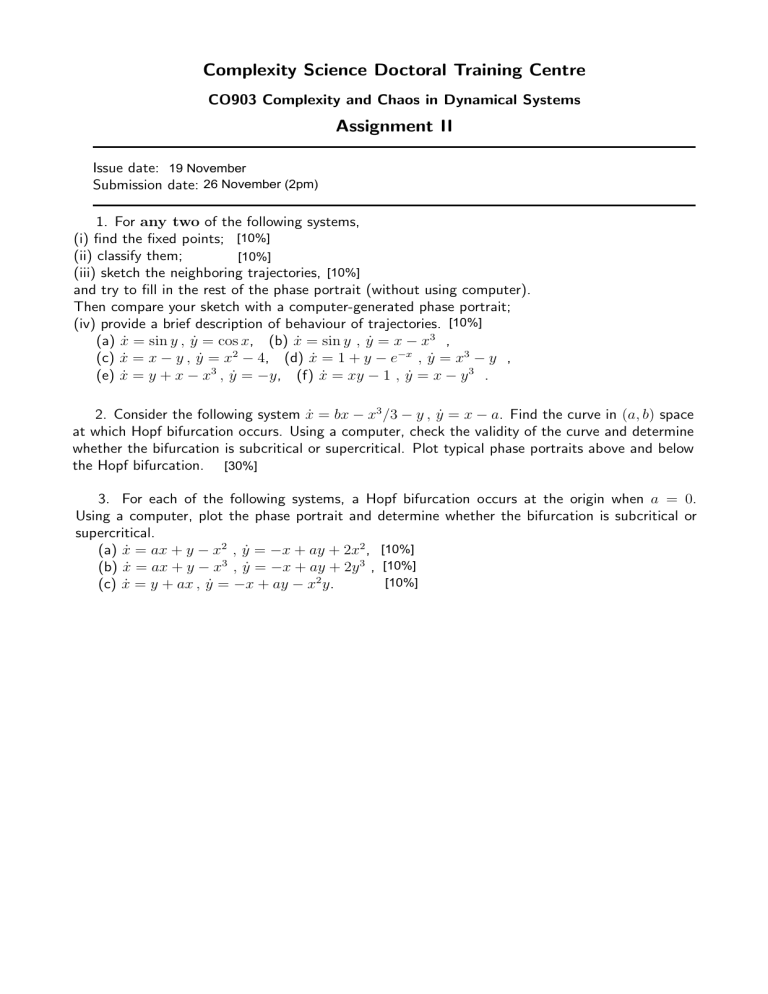
Complexity Science Doctoral Training Centre
CO903 Complexity and Chaos in Dynamical Systems
Assignment II
Issue date: 19 November
Submission date: 26 November (2pm)
1. For any two of the following systems,
(i) find the fixed points;
(ii) classify them;
[10%]
[10%]
(iii) sketch the neighboring trajectories, [10%] and try to fill in the rest of the phase portrait (without using computer).
Then compare your sketch with a computer-generated phase portrait;
(iv) provide a brief description of behaviour of trajectories.
[10%]
(a)
(c) ˙
˙ = sin
= x
− y , y , y ˙ y ˙
= cos
= x
(e) ˙ = y + x
− x 3 , ˙
2 x , (b) ˙ = sin y , y ˙ =
−
4 , (d) ˙ = 1 + y
− e x
−
− x y =
− y , (f) ˙ = xy
−
1 , ˙
, x y ˙
3
=
, x 3 − y , y = x
− y 3 .
2. Consider the following system ˙ = bx
− x
3
/ 3
− y , y ˙ = x
− a . Find the curve in ( a, b ) space at which Hopf bifurcation occurs. Using a computer, check the validity of the curve and determine whether the bifurcation is subcritical or supercritical. Plot typical phase portraits above and below the Hopf bifurcation.
[30%]
3. For each of the following systems, a Hopf bifurcation occurs at the origin when a = 0 .
Using a computer, plot the phase portrait and determine whether the bifurcation is subcritical or supercritical.
(a) ˙ = ax + y
− x 2
(b) ˙ = ax + y
− x 3
,
, y ˙
˙
=
− x + ay + 2 x 2 ,
(c) ˙ = y + ax , ˙ y =
− x + ay + 2 y 3 , y =
− x + ay
− x
2 y .
[10%]
[10%]
[10%]
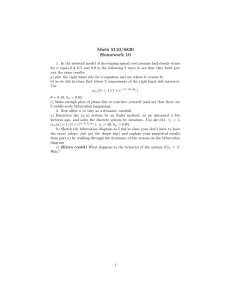
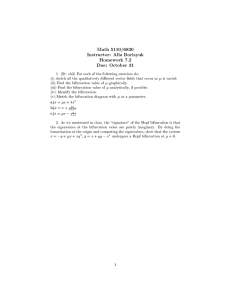
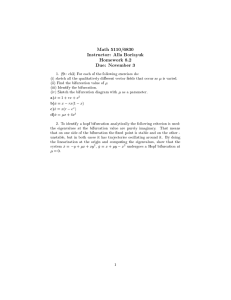
![PHYSICS 110A : CLASSICAL MECHANICS PROBLEM SET #1 [1] Consider the equation ˙](http://s2.studylib.net/store/data/010997192_1-49a376a3e35abccb6480a877464a55a3-300x300.png)
